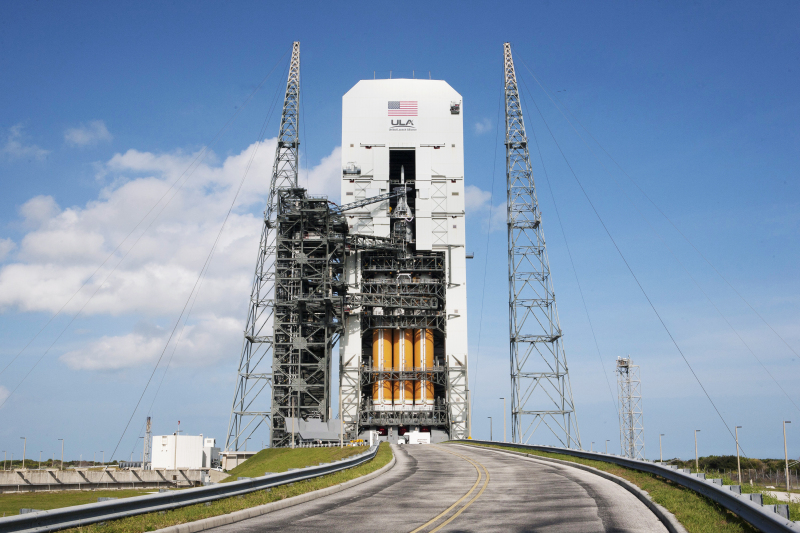NASA's Orion spacecraft, which could one day send astronauts to Mars, is stuck on terra firma for at least another day after the space agency's mission control was unable to satisfactorily resolve a number of issues before a 6:45 a.m. PST launch window closed.
The unmanned vehicle is awaiting its first test in Earth orbit. But after multiple delays for high winds and a stuck liquid-oxygen drain valve on one or more of the Delta IV Heavy rocket's booster engines, NASA didn't have time to get the rocket off the pad. They will try again Friday morning.
The vehicle perched atop the Delta rocket, known officially as Orion Multi-Purpose Crew Vehicle, or MPCV, is designed to carry up to 4 astronauts.
As NPR's Geoff Brumfiel reported earlier this week, Orion is expected to make two orbits at a distance of 3,600 miles from the Earth's surface on its second lap, before conducting a re-entry burn and splashing down in the Pacific Ocean.
The flight is meant to validate the vehicle's basic systems, including avionics, heat shielding and parachutes.

9(MDAxOTAwOTE4MDEyMTkxMDAzNjczZDljZA004))